Tory leadership race: the Runners and Riders
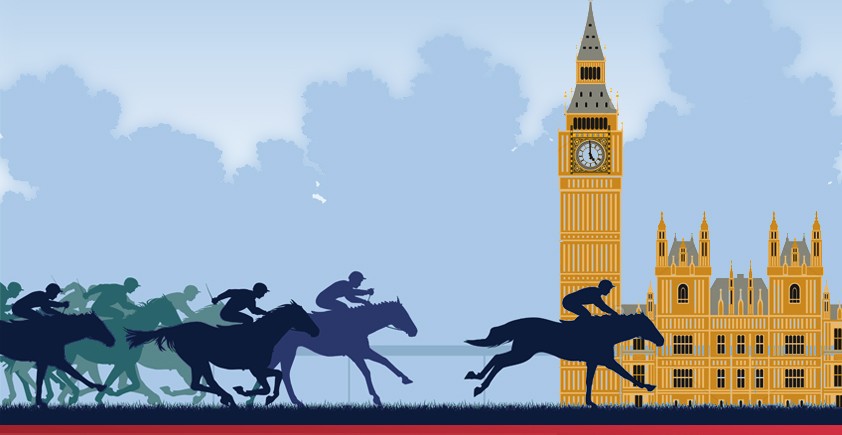
Harold Wilson said a week is a long time in politics. In the seven days following the surprise Brexit result, an hour in British politics has seemed like an eternity.
Unlike in the case of another party that comes to mind, the speed and efficiency at which the Conservative Party moves to its next leader never ceases to amaze. The tears had barely dried following David Cameron’s departure before plots, rumours and emails were doing the rounds.
The news of the week undoubtedly belongs to Boris Johnson’s last minute decision not to stand, perhaps ending a lifetime ambition to be Prime Minister. His once friend and ally Michael Gove delivering the coup de grace with an unexpected and long-denied leadership bid preceded by an accidentally-sent email from his wife, the journalist Sarah Vine, suggesting Boris was not living up to his Brexit credentials.
Now we have five candidates, not only vying for the leadership of the party but for coronation as the country’s next Prime Minister. The final two candidates will be declared on 12th July, with ballot papers going to Conservative members mid-August and a final result announced on 9th September.
Here’s Luther’s take on the runners and riders, who now must win the votes of their fellow parliamentary colleagues.
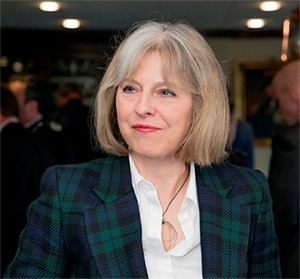 With the shock withdrawal of Boris Johnson, Theresa May now finds herself squarely as the front runner of the contest. She has over 60 MPs supporting her, many of them cabinet members – symbolically she was proposed by ardent Leave campaigner Chris Grayling and Remainer Justine Greening – and is already ahead in polls of members.
With the shock withdrawal of Boris Johnson, Theresa May now finds herself squarely as the front runner of the contest. She has over 60 MPs supporting her, many of them cabinet members – symbolically she was proposed by ardent Leave campaigner Chris Grayling and Remainer Justine Greening – and is already ahead in polls of members.
She has portrayed herself as the stability candidate who can both unite and reassure the country at a time of uncertainty. Citing her track record as one of the longest serving Home Secretaries and a tough negotiator who has taken on vested interests and dealt with terrorists.
Indeed in this current ‘crisis’ scenario, she has sought to use criticisms thrown at her in the past – reserved, unclubbable, an outsider – into the leadership strengths that are required to play hardball with EU leaders and win the trust of the voters.
In terms of the Brexit negotiations she has confirmed that she would create a dedicated government department led by a Cabinet minister ranking alongside the great offices of state and that this would go to a Leave campaigner. To underscore that she already has a plan, she confirmed that she will not invoke Article 50 ‘before the end of the year’, she has rejected the need for any further Budget before the Autumn Statement and crucially she has no plans to hold a General Election before 2020.
But with Johnson out of the race and Michael Gove now as her most likely challenger, she knows that simply positioning herself as the grown up may no longer be enough. She will also need a competing domestic policy agenda to combat his compelling arguments around social mobility and building an aspirational society.
She has given a hint of that by announcing plans for ‘radical social reform’, in which a ‘strong state’ had a valuable role to play – an interesting point of demarcation between herself and the more ideological Gove – as well as seeking to reassure more liberally minded backers by dropping government commitments to leaving the European Convention on Human Rights.
The politician who once feared the Conservatives were becoming the ‘nasty party’ is now seeking to own the One Nation mantel with gusto. What’s clear is that this contest is now May’s to lose.
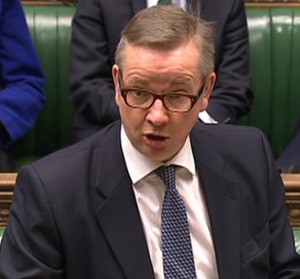 Michael Gove has surprised everyone with his ruthlessness. First in opposing his patron, David Cameron, over Europe and now with the political assassination of Boris Johnson, who most people anticipated he would support and run with on a joint ticket. While it is still early days Michael Gove is already seen as the main challenger to Theresa May.
Michael Gove has surprised everyone with his ruthlessness. First in opposing his patron, David Cameron, over Europe and now with the political assassination of Boris Johnson, who most people anticipated he would support and run with on a joint ticket. While it is still early days Michael Gove is already seen as the main challenger to Theresa May.
Gove is considered one of the Conservative Party’s brightest intellects, and was widely praised for his charisma and eloquence throughout the referendum campaign. His stance since the referendum has been to take a hard line towards concerns that Brexit will not deliver new border security. This can best be seen in his attack on Boris, who he accused of being unable to provide the necessary leadership in the post-Brexit negotiations, and in the leaked email from his wife who advised him to seek assurances from Boris on border controls, before offering his support.
He is supported by not only Eurosceptic MPs, but also by Cameron loyalists like Nicky Morgan who signed his ballot papers. His success as Secretary of State for Education in pushing through reforms despite intense opposition from unions was widely praised, and he is considered by some right wing commentators to be one of the great reforming ministers of recent times.
These achievements stands him in good stead. However, there are concerns about that he is too intellectual, ideological and will struggle to attract broad support across the country. That said, like Stephen Crabb, he has a good story to tell in regards to his own humble background and can speak well about social mobility and, despite his Euroscepticism, is generally considered to be on the modernising, liberal wing of the party.
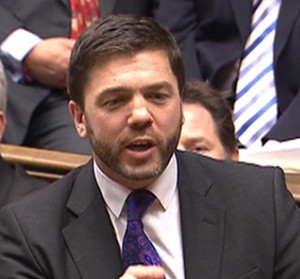 After the two big hitters, Work and Pensions Secretary Stephen Crabb – who has announced a joint ticket with Business Secretary Sajid Javid who would serve as his Chancellor – occupies a strong third place position, particularly after the popular Scottish party leader Ruth Davidson endorsed his candidacy.
After the two big hitters, Work and Pensions Secretary Stephen Crabb – who has announced a joint ticket with Business Secretary Sajid Javid who would serve as his Chancellor – occupies a strong third place position, particularly after the popular Scottish party leader Ruth Davidson endorsed his candidacy.
Despite both being Remainers, Crabb’s pitch to the party is based on his and Javid’s working class backgrounds and him as a conciliator who can reunite the party and assemble an expert team. His bid has had some initial momentum with many of the new generation of Conservative MPs in the 2010 and 2015 intakes rallying to his cause.
In terms of the re-negotiation, he has placed the emphasis on immigration, believing that this was the issue that many leave voters wanted action. He has argued that freedom of movement would be a ‘red line’ issue, suggesting that it may even take priority over the single market.
However his launch event exposed some of the difficulties he may face in uniting the party. His answers to questions about his opposition to same-sex marriage were awkwardly batted away as ‘not relevant to this leadership campaign’ and seem to jar with his pitch based on ‘principles and values’.
His reliance on Remainers within his top team is unlikely to draw many Leave supporters or those peeling off from team Boris. Ultimately MPs may decide that he simply does not have the experience or the gravitas – he’s served only two years in the Cabinet – to be given the ultimate responsibility in such unprecedented times.
Indeed this campaign feels like a dry run for a future leadership bid down the line. Time is certainly on his side and the fact he has stood up to the plate is likely to secure him a decent role in the next government.
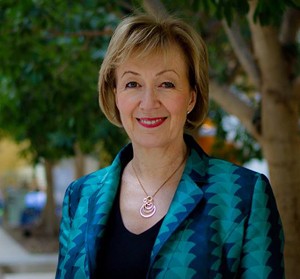 A last-minute entry, Energy Minister Andrea Leadsom, played a prominent role in the Leave campaign and put in a number of assured performances in the big TV debates.
A last-minute entry, Energy Minister Andrea Leadsom, played a prominent role in the Leave campaign and put in a number of assured performances in the big TV debates.
Her backers so far come solely from the Leave camp and she may struggle to win a broad base of support within the parliamentary party. Her reputation was undoubtedly enhanced by the referendum campaign. Her focus on the positive case for Brexit with an unrivalled grasp of the stats, arguably saw her leap frog other prominent female ministers such as Priti Patel.
She is a former City Minister with a professional background in finance working for Barclays, which she is likely to promote in the leadership contest to compensate for her lack of Cabinet experience.
As Chair of the Fresh Start group of Tory MPs, she set out after 2010 to understand how a renegotiation could be achieved. She will undoubtedly try and play on this experience and understanding.
Again her chances of making the final two look slim but the prospect of a plum cabinet position is likely.
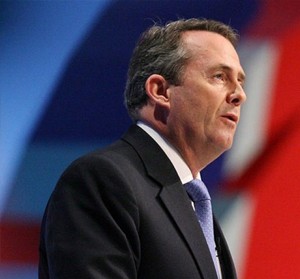 Despite being marred by his forced resignation as Defence Secretary in 2011, Liam Fox can still claim to be a Tory grandee and standard bearer for the Right. He has had an extensive ministerial career which dates back to the Major Government and he is also popular amongst the traditional grass roots of the Tory Party. He has worked assiduously to build a base of support with the new MPs in the South West and will look to rely on their support to get him through the rounds of voting.
Despite being marred by his forced resignation as Defence Secretary in 2011, Liam Fox can still claim to be a Tory grandee and standard bearer for the Right. He has had an extensive ministerial career which dates back to the Major Government and he is also popular amongst the traditional grass roots of the Tory Party. He has worked assiduously to build a base of support with the new MPs in the South West and will look to rely on their support to get him through the rounds of voting.
That said, as a representative of the traditional right he is unlikely to attract broad support across the country and his candidacy should be seen as less an attempt to become the next Prime Minister and more as a play to return to the cabinet and take a leading role in the Brexit negotiations.
He will undoubtedly attempt to promote his Euroscepticism, along with his expertise as a former minister. However, so far only six MPs have declared for him and making the top two seems unlikely. That said a strong showing may mean a return to the front bench.
What next for Boris?
Given the events of Thursday, another big question for the leadership contenders will be what they will do with Boris. As the architect of the Brexit vote he has now bowed out of the race to deliver it, but will undoubtedly still expect to pay some kind of role in government.
The circumstances of his decision and the claims of back-stabbing, suggest that he is unlikely to serve Michael Gove in any senior capacity. Particularly as Gove has questioned his leadership credentials. Theresa May has also called into question his negotiating skills – cracking a few jokes at his expense – meaning he is unlikely to be her Brexit Secretary either.
One possible berth muted has been the MoD – an important role, particularly as Britain leaves the EU, but one where the secretary of state is necessarily straitjacketed. There is also of course the office of Deputy Prime Minister to consider, showing members that Boris has been given a prominent role while leaving his specific ministerial responsibilities more ambiguous.
